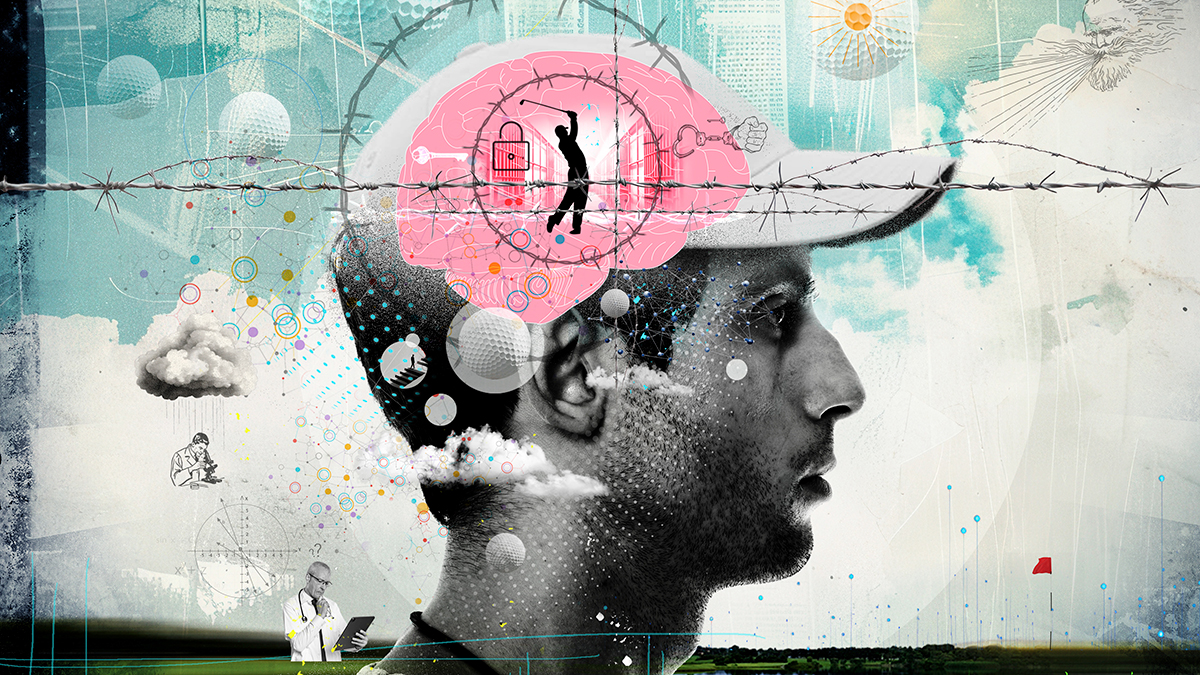Unlock Your Mind – Australian Golf Digest

- by Admin
- September 25, 2024

Sport psychologist Dr Bhrett McCabe explains how to overcome common mental pitfalls
We can learn to think like the best players in the world, but as sport psychologist Dr Bhrett McCabe explains, there are numerous landmines, or mental mistakes, that we commonly make on the course that cause our scores to suffer. Here, McCabe answers three of your questions.
▶ ▶ ▶
Many of us get frustrated when we can’t take our range game to the course. How do we fix that?
One of the biggest concepts I teach is called capability and capacity. We are all capable of something. Scottie Scheffler and players on tour have high capabilities, but when they go play, they’re not going to have 100 percent of their tool set. They may be tired, or they may have a group they don’t like or they may be hitting it so well that their yardages are plus-three yards and it’s disconcerting.
If you could put your finger on a scanner and it said, “OK, you’ve got 78 percent of your abilities today,” most people would say, “Oh, man, I hope I have my driver.” Most players are trying to find the 22 percent that is missing.
As a result, they’re out there messing with their swing and trying to find a groove. The best players are focusing on the 78 percent that they have, so they make adjustments like downshifting to a fairway finder off the tee.
▶ ▶ ▶
Why are par putts seemingly easier to make than birdie putts?
There was an article written 15 years ago by some University of Pennsylvania Wharton business school professors. The title of the article was, “Is Tiger Woods Loss Averse?” They found that Woods made more par putts than he did birdie putts from the same distance after controlling for all factors.
A few years later, I challenged a statistician to figure out why that was. He found that players tend to miss birdie putts short. It’s natural for the mind, as you’re walking up to a 12-footer for birdie, to think, I’d like to make birdie, but what I don’t want is to have a three-putt.
When you’ve got a par putt, what are you thinking? I’m making this son of a gun or nothing. You tend to lock in, and you reduce the amount of choices that are available on your decision. Now, if you could look at a birdie putt the same way you look at a par putt, then you’ve cracked the code, but we can’t. Is a three- putt worth the risk to make a birdie? That’s a hard decision to make.
▶ ▶ ▶
How can I settle my nerves on the first tee in an important round?
What are you feeling on the first tee? I need to get off to a good start. I’ve got to get it all. I don’t try to suppress those emotions. Let them come in. We experience them, and then we just let them pass. Identify what you are trying to do, and turn to your go-to fairway-finder shot. Pick a clear target. Accept how you feel, and verbalise the shot you want to hit. I don’t want you to feel calm. I want you to feel connected to your process.
The Latest News
-
November 15, 2024Kyrgios confirmed to return to ATP Tour at Brisbane International 2025
-
November 15, 2024Australian bounce India’s arch-enemy amid KL Rahul dilemma
-
November 15, 2024Nick Kyrgios set to make long-awaited return to tennis as comeback date revealed
-
November 15, 2024List wins elusive DP World Tour card, Barron loses his
-
November 15, 2024India great warns ‘the king is back in his territory’ as struggling Virat Kohli returns for fifth tour





